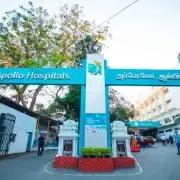Budgeting and Financing Tips for Medical Travel
In This Article
Budgeting and Financing Tips for Medical Travel
Elena
Updated on October 01, 2024
Medically verified by Dr. Arya
Fact checked by Dr. Fazeela

Medical Travel
10 mints
Medical travel, or medical tourism, is when individuals seek healthcare treatments in other countries, often for cost savings, specialized procedures, or faster access to medical services.
While the benefits of medical travel can be substantial, it also requires thorough planning, particularly regarding budgeting and financing.
Karetrip introduces to you a step-by-step guide to help individuals understand how to plan financially for medical travel.
Understanding the Costs Involved
The first step to budgeting for medical travel is understanding the total cost of the procedure. Costs can vary significantly depending on the country, the hospital, and the specific treatment.
Medical tourism often offers savings of 30% to 80% on treatments in countries like India, Thailand, and Mexico, compared to Western countries.
1. Medical Procedure Costs
Start by getting a detailed quote from the medical provider. This includes fees for the surgeon, anesthesia, hospital stay, and post-operative care. Don't forget to ask if any extra charges might apply, such as diagnostic tests or follow-up consultations.
2. Travel Expenses
You’ll need to account for airfare, which can vary greatly depending on the distance to your destination. Be sure to check for discount flights and medical travel packages that may include flights at lower rates.
3. Accommodation Costs
In many cases, you'll need to stay near the medical facility before and after your procedure. Some hospitals may offer discounted or free lodging for medical tourists. Otherwise, budget for a hotel or Airbnb. Consider the length of your stay based on the required recovery period.
4. Local Transportation
Local transportation costs can add up. You’ll need to move between your hotel and the hospital, and potentially explore the city for essentials or leisure. Use ride-hailing apps, public transport, or inquire about shuttle services offered by your medical facility.
5. Meals and Miscellaneous Expenses:
Remember to allocate funds for food, water, and any unforeseen costs that might arise during your stay. If you're on a special post-surgery diet, inquire about meal plans at your accommodation.
6. Companion Expenses
Many patients travel with a companion for emotional support, which means additional airfare, lodging, and food expenses. Some hospitals offer packages that include accommodation for companions.
 10 min Read
10 min ReadBooking Budget Friendly Accommodation Near Apollo Hospital, Greams Road
 10 min read
10 min readWhere can I exchange Bangladeshi Taka To Indian Rupees?
 10 min read
10 min readUnique Bangalore: Unusual & Intriguing Places to Explore While Staying In The City For Treatment
Get a Callback Now
Financing Your Medical Travel
Once you've calculated the estimated costs, it's essential to assess your financing options. Depending on your financial situation, you may explore different ways to fund your medical travel.
1. Savings
The most straightforward way to fund medical travel is by using your savings. If you're planning ahead, setting aside money monthly can significantly reduce financial stress when the time comes for the procedure. Emergency funds can also be considered if medical travel is urgent.
2. Health Insurance
Check if your health insurance covers treatments abroad. Some insurance companies now offer international coverage for select procedures or emergency care, but many may not cover elective treatments or pre-existing conditions. If your treatment is covered, be sure to verify the extent of coverage, including hospital stays and any aftercare.
3. Medical Loans
If you don’t have enough savings, consider taking out a medical loan. Many financial institutions offer loans specifically for medical procedures, both locally and abroad. Research different loan providers, focusing on interest rates, repayment terms, and any hidden fees. Some hospitals and medical tourism facilitators may partner with financial institutions to offer low-interest medical loans.
4. Credit Cards
For smaller procedures or partial payments, credit cards can be a convenient option. Some credit cards offer lower interest rates for medical expenses, or you may have a card that offers travel rewards, helping to offset flight costs. However, avoid relying heavily on credit cards if you cannot pay off the balance quickly, as interest rates can accumulate.
5. Employer Medical Benefits
Some employers offer medical travel benefits as part of their healthcare package. Check with your HR department to see if your company provides financial assistance or coverage for international medical procedures.
6. Crowdfunding
In cases where personal funds and insurance fall short, crowdfunding can be a viable option. Many people turn to platforms like GoFundMe or Ketto to raise funds for medical travel. It’s important to tell a compelling story and be transparent about your needs. Be prepared to share updates with supporters throughout your journey.
7. Medical Tourism Packages
Some companies specialize in organizing medical tourism trips. These packages typically bundle the cost of the procedure, travel, accommodation, and sometimes even sightseeing. While not always cheaper, they offer convenience and may include special discounts or financing options.
Budgeting Tips for Medical Travel
1. Research Multiple Providers
Always get quotes from multiple hospitals or clinics. Prices for the same procedure can vary greatly, and some institutions may offer additional services at no extra cost. Compare not only the prices but also the quality of care and the institution's reputation.
2. Create a Detailed Budget
List all your expected costs in a detailed budget. Include every expense, no matter how small, and add a 10-15% cushion for unexpected expenses. This will give you a clearer idea of how much you need to save or finance.
3. Look for Discounts and Deals
Check if the hospital or medical provider offers any discounts for international patients. Some countries have medical tourism boards that provide special incentives to attract foreign patients, such as discounted procedures or accommodations.
4. Choose Your Destination Wisely
Some countries offer significantly lower medical costs than others for the same quality of care. Compare the costs of your procedure in different countries to find the best value for your money. Countries like India, Thailand, and Mexico are known for offering affordable, high-quality medical care.
5. Plan for Aftercare and Follow-up Visits
Aftercare is an essential part of any medical procedure. Ensure that your budget includes costs for follow-up visits, medication, and any post-surgical care you may need once you return home. This could include physical therapy or regular check-ups.
6. Monitor Currency Exchange Rates
If you're traveling abroad, keep an eye on currency exchange rates. A favorable exchange rate can significantly reduce your overall cost, while an unfavorable rate may add more to your expenses. Consider using a travel card with minimal foreign transaction fees to save on currency conversion.
Medical travel can be a cost-effective way to access high-quality medical care, but it requires careful financial planning. By understanding the full scope of costs and exploring various financing options, you can ensure a smoother experience and prevent unexpected financial strain.
Research, compare, and budget thoroughly to make the most of your medical travel journey.
The information provided represents the views and opinions of Karetrip. It is crucial to conduct your own independent research before making any decisions regarding your healthcare journey.
Understand all costs: Ensure you have a full understanding of procedure, travel, and accommodation costs before making a decision.
Check insurance coverage: Some insurance plans may cover international treatments; always confirm with your provider.
Consider medical loans: If savings aren’t enough, medical loans offer flexible financing for medical tourism.
Use savings when possible: Prioritize using savings over credit cards to avoid high interest rates.
Look into employer benefits: Some employers offer medical travel coverage, so check with HR.
Compare providers: Always get quotes from multiple hospitals to find the best value for your money.
Plan for aftercare: Include the cost of follow-up care and medications in your budget.
Research medical tourism packages: These bundles can offer convenience and potential savings.
Monitor currency exchange rates: Favorable rates can save you money, while unfavorable ones can add to your costs.
Crowdfunding as a last resort: Crowdfunding can be a viable option for those who need extra financial assistance.
Source Links
Medical Tourism Association
Healthline
GoAbroad.com

